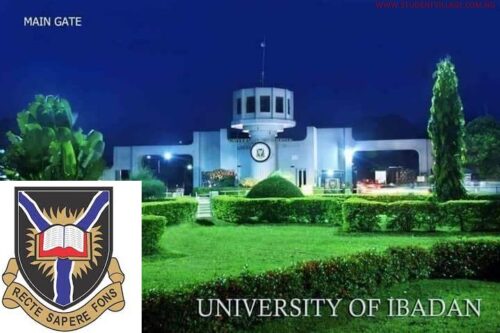IJMB CRS 102 Past Questions 2016
IJMB Government 102 Past Questions 2016
IJMB Physics 102 Past Questions 2022
INTERIM JOINT MATRICULATION BOARD EXAMINATION 2016
SUBJECT: LITERATURE – IN- ENGLISH, PAPER I: DRAMA
TIME ALLOWED: THREE HOURS (3 HRS)
INSTRUCTION: Answer FIVE (5) questions. ONE (1) from Section A, TWO (2) from Section B and ONE (1) question each from Section C and D. Do not use a text to illustrate more than one question.
SECTION A: SOCIOPOLITICAL BACKGROUND
Answer only ONE (1) question from this section. Each question carries (20 marks).
1. Select any Greek tragic play and discuss how the playwright handled the role of the gods in deciding the fate of the people as well as their interference in human actions.
2. The Medieval and Renaissance era was characterized by several ideological (philosophy and theology) elements. Discuss this using two plays of your choice.
3. Medieval drama mainly functioned as a tool for religious propagation and moral inculcation. Justify this statement based on your reading of Everyman by Anonymous.
SECTION B: CONTEXT QUESTIONS
Answer TWO (2) questions from this Section. Use a text to answer the questions. Each question carries (15 marks).
4. Doctor Faustus – Christopher
EITHER: (a) What will be, shall be; Divinity adieu!
These metaphysics of magicians
And necromantic books are heavenly;
Lines, circles, letters, characters
Ay, these are those that Faustus most desires
O, what a world of profit and delight,
Of power, honour and omnipotent
Is promised to the studious artisan
Act I Scene I (lines 45 – 52)
Questions
- Who is the speaker in the above speech?
- Who is the speaker referring to as (studious artisan”?
- To whom is the speech addressed?
- According to the speaker, who is Faustus?
- What does the speaker mean by “What will be, shall be! Divinity adieu!”
OR
(b) Please it, your Grace, the year is divided into two
circles over the whole world, so that when it is winter
with us, on the contrary circle, it is likewise summer with
them, as in India, Saba and such countries that lie far
east, where they have fruit twice a year. From whence,
by means of a swift spirit that I have, I had these grapes
brought as you see.
Act IV Scene 7 (lines 26 – 32).
Questions
- Who is the speaker?
- To whom is the speech addressed?
- Based on the speech, what does ‘swift spirit’ describe?
- Who else is present?
- What action follows this speech?
5. The Merchant of Venice – William Shakespeare
EITHER (a) If you did know whom I gave the ring,
And would conceive for what I gave the ring,
And how unwillingly I left the ring,
When nought would be accepted but the ring,
You would abate the strength f your displeasure.
Act V Scene I (lines 194 – 199)
Questions
- Who is the speaker?
- To whom is the speech addressed?
- What happened next after this speech was made?
- Where is the speech made?
- Explain the underlined statements in your own words.
OR
(b) Shall I bend how and, in a bondman’s key,
with bated breath, and whispering humbleness, say this:
Fear sir, you spit on me on Wednesday last;
You spurn’d me such a day; another time
You call’d me dog, and for these courtesies
I’ll lend you this much money.
Act I Scene III (lines 122 – 128)
SECTION C: ESSAYS (EUROPEAN DRAMA)
Answer ONE (1) question from this section. Each question carries (20 marks)
6. Doctor Faustus – Christopher Marlowe
EITHER (a) “Doctor Faustus is a play that mirrors the essence of the renaissance reality” Discuss the above quotation using both historical and dramatic records.
OR
(b) “The Helen of Troy is a figure in Greek Myth and Legend that is brought into reality in Doctor Faustus” Identify and explain the factors that made this possible and how Faustus is able to achieve this.
7. The Merchant of Venice – William Shakespeare
EITHER (a) “Shakespeare’s Merchant of Venice captures events in human affairs that show how virtues manifest over vices”. Provide evidence with illustrations from the text, using the character of Shylock and Antonio as examples.
OR
(b) “The Merchant of Venice is a documentation of the extent to which a man can go in search of love”. Discuss this statement considering the actions of several suitors in the play.
SECTION D: ESSAY (AFRICAN DRAMA)
Answer only ONE (1) question from this Section. Each question carries (20 marks)
8. The Island:- Athol Fugars et al
EITHER (a) “The Island prison and the South African apartheid experience portray oppression and suffering in different forms” argue for or against this assertion with adequate illustration from the play, The Island.
OR
(b) Is the play The Island a tragedy or tragic comedy? Provide strong proof for your position with examples from the play text.
9. Hard Ground – Ahmed Yerima
EITHER (a) “In African society, there is a strong belief that the enemy is always from within” Justify this statement using the character of Nimi and the Don, taking into consideration Nimi’s eventual discoveries.
OR
(b) “Hard Ground is a political play that exposes the intrigues of politics within the family and the lager society”. Discuss this statement with reference to political dialogue at different levels in the play.
Thanks for reading IJMB Literature 101 Past Questions 2016







